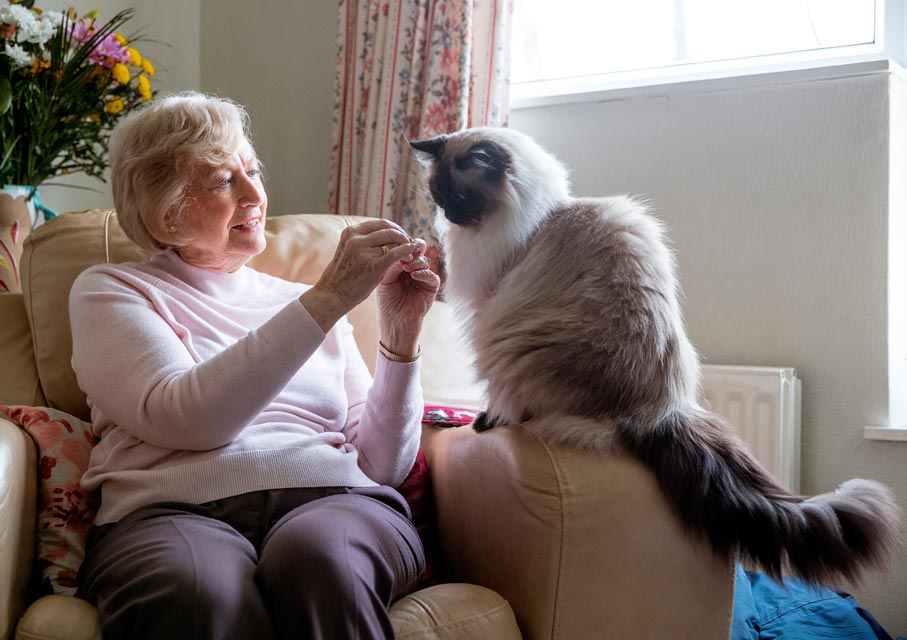Benefits of Cats for the Elderly

Everyone who shares their life with cats can attest to the benefits experienced from the strong bond that develops. Cats provide endless fun, joy, and companionship.
The benefits that having a cat may provide to an elderly person can be powerful. Not only that, but elderly people make great caretakers for cats as well.
How Cats Help Older People
Here are just some of the ways a pet cat can be of benefit to elderly people:
- Cats can help lower people's blood pressure, decrease stress and anxiety, and improve mental health. Seniors sometimes experience increased loneliness and having a cat to hang out with and take care of can go a long way toward easing that.
- A cat's purr may even be just the right frequency to help with a person's joint pain (Why do cats purr?, 2003).
- Caring for a cat helps seniors stay active and alert.
- Cats are relatively easy to care for—they don't require walks and do most of their own grooming. They can be played with from a seated position with a wand toy.
How to Choose the Right Cat
Most of the time, an older cat will be the right choice when adopting a new cat for a senior. Kittens are wonderful, of course, but their boundless energy might be too much for some seniors to keep up with. When choosing an adult cat, you will also be able to see what the long-term personality is more easily than with a kitten.
Using Soft Paws® on the kitty could be of help because some seniors are at higher risk of developing infections if they're purposely or accidentally scratched, and their thinner skin leaves them more vulnerable to scratches that break the skin. Putting Soft Paws® on all four paws is best because it protects against scratches on the lap from when a cat pushes off with the rear feet to jump down.
It can be helpful to arrange for someone to routinely trim the cat's nails and transport the kitty to vet and groomer appointments.
You can learn more about seniors and cats, including information about pets for seniors living in assisted care situations, here: https://www.caring.com/senior-living/assisted-living/benefits-of-elderly-owning-pets.
References
- Why do cats purr? (2003).




